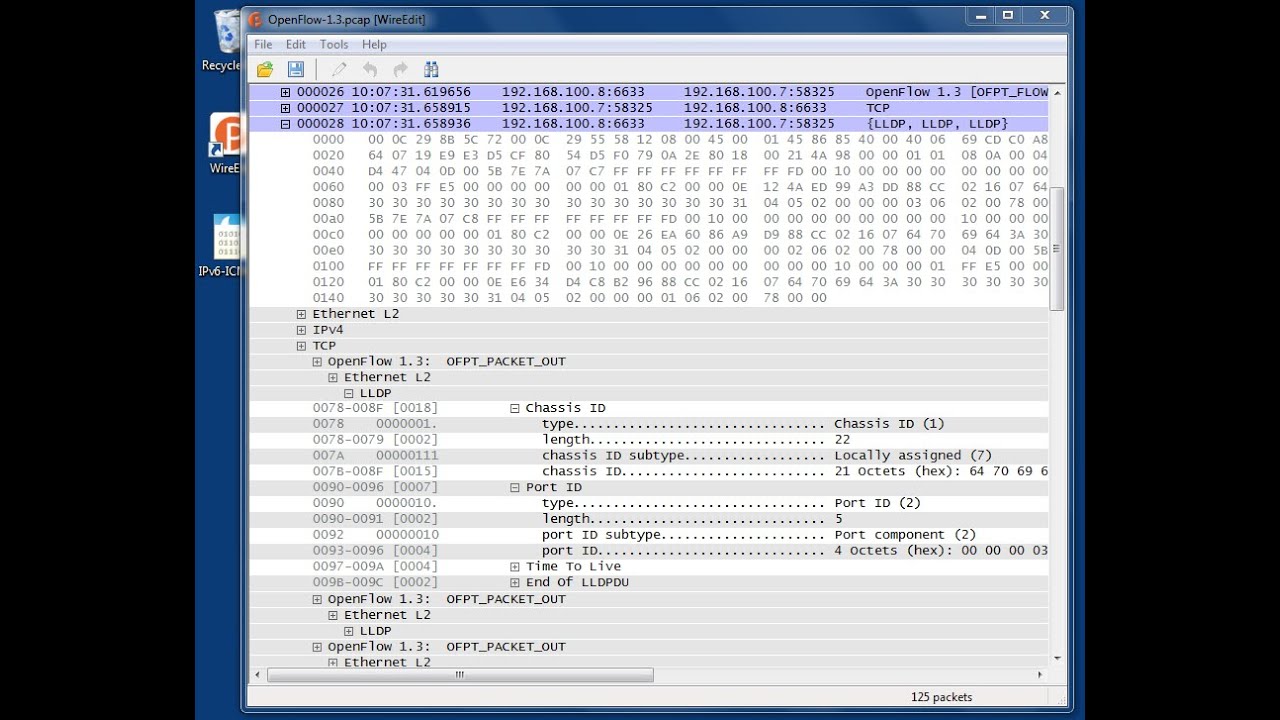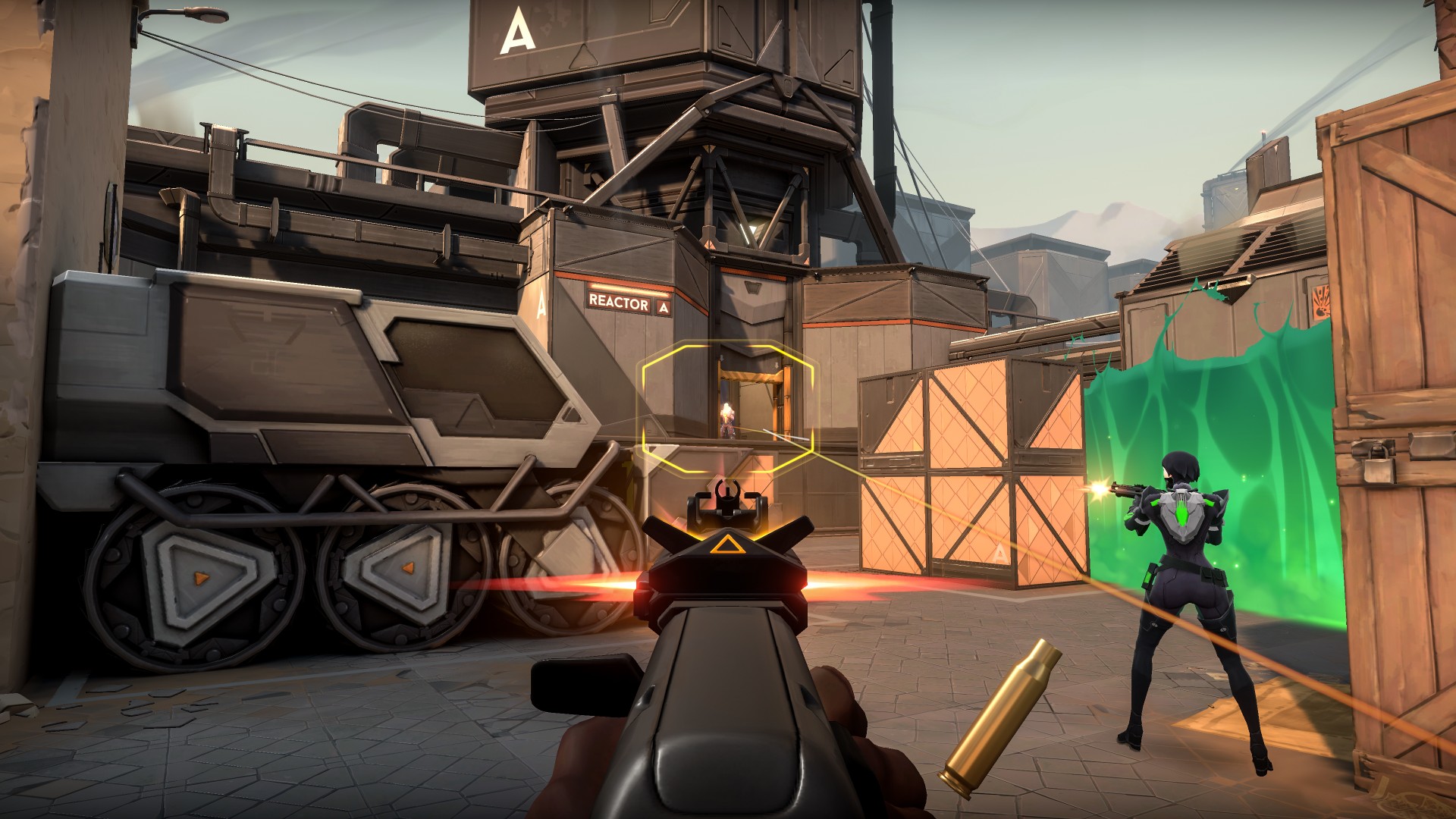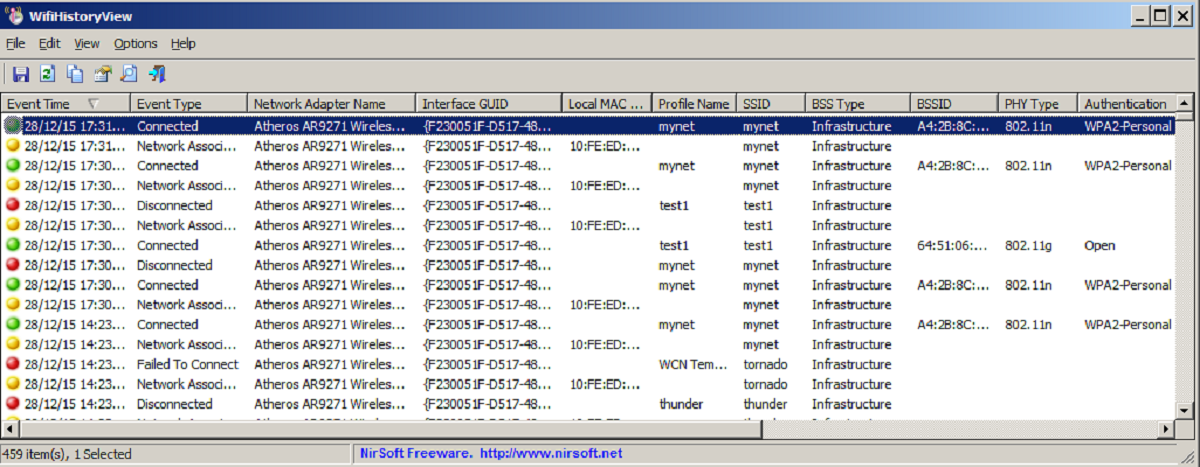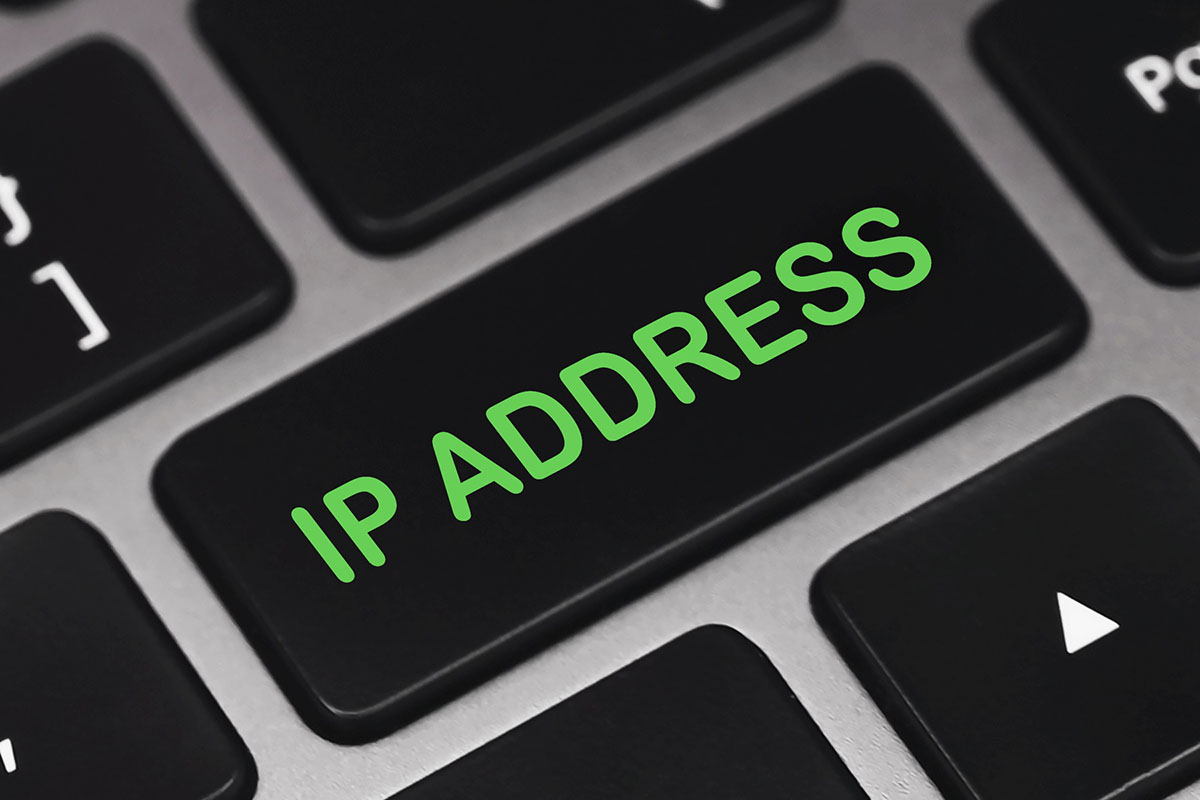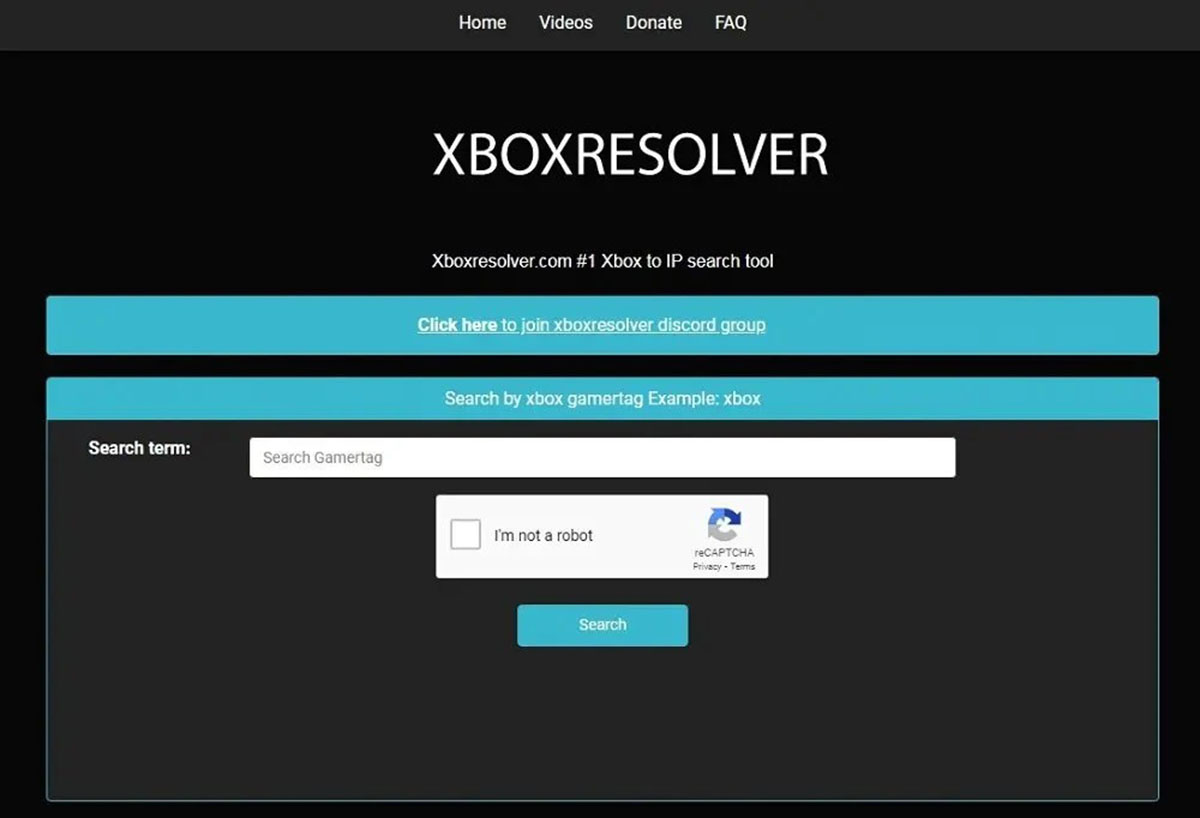Introduction
Welcome to the world of FPS (First-Person Shooter) online gaming, where players engage in fast-paced, adrenaline-pumping battles against opponents from around the globe. In this highly competitive gaming landscape, some players may resort to unconventional methods to gain an unfair advantage over their rivals. One such method is packet hacking.
Before we delve into the world of packet hacking in FPS online gaming, let’s clarify what packet hacking actually means. Packet hacking involves manipulating network traffic (packets) to gain an advantage in a game. By intercepting and modifying these packets, players can alter the game’s mechanisms and gain an unfair advantage over others.
But why would someone indulge in such unethical practices in the first place? The allure of dominance and victory often drives some players to explore every possible means to come out on top. By exploiting vulnerabilities in the game’s network protocols, packet hackers can gain various advantages, such as revealing opponents’ positions, increasing their own speed, or even rendering themselves invulnerable to damage. This gives them an unfair advantage and compromises the integrity of the game for other players.
While we dive deeper into the world of packet hacking, it’s important to note that engaging in such activities is illegal in most jurisdictions. Online gaming companies have strict policies against cheating and hacking, and players caught engaging in packet hacking can face severe consequences, including permanent bans from the game. It’s paramount to understand the risks involved and the potential legal implications before considering such actions.
Throughout this article, we will explore the various techniques and tools used in packet hacking, the vulnerabilities in game servers that enable such attacks, and the means to detect and prevent packet hacking. It is essential to have a comprehensive understanding of these topics to safeguard the integrity of online gaming experiences for all players.
So, put on your virtual armor and get ready to learn about the intricate world of packet hacking in FPS online gaming.
What is packet hacking?
Packet hacking, also known as network packet manipulation, refers to the act of intercepting, analyzing, and modifying the network traffic (packets) exchanged between a client and a server in an online game. By gaining access to these packets, players can exploit vulnerabilities in the game’s network protocols to gain an unfair advantage over their opponents.
Every time you play an online game, your computer communicates with the game server through a series of network packets. These packets contain information such as your movements, actions, and interactions with the game environment. Packet hackers use various techniques to intercept and modify these packets in real-time, altering the game’s mechanics to their advantage.
The process of packet hacking typically involves using specialized tools or software that allow players to monitor and manipulate the network traffic. These tools enable players to capture packets flowing between their computer and the game server, providing them with a window into the inner workings of the game’s network protocols.
Once the packets are captured, packet hackers can analyze their contents to extract valuable information. This could include details about the location of other players, ammunition supplies, or even upcoming in-game events. By having access to this information, hackers can gain a tactical edge, knowing their opponents’ positions and actions before they have a chance to react.
In addition to analyzing packets, packet hackers can modify them to gain further advantages. They can alter details such as their character’s speed, health, or even the damage dealt to enemies. By manipulating these parameters, hackers can create an unfair imbalance in the gameplay, making it extremely difficult for other players to compete on a level playing field.
It’s important to note that packet hacking is considered a form of cheating and is strictly prohibited by game developers and online gaming communities. Engaging in such activities can lead to severe consequences, including permanent bans from the game and legal repercussions in some cases.
In the following sections, we will explore the reasons behind packet hacking in FPS online gaming, the legality of such practices, common tools used by packet hackers, and techniques to identify and prevent packet hacking. It is crucial for both players and game developers to understand the intricate nature of packet hacking to ensure a fair and enjoyable gaming experience for all.
Why would someone packet hack in FPS online gaming?
The world of online gaming is highly competitive, and some players may resort to packet hacking as a means to gain an unfair advantage over their opponents. While such actions are considered unethical and illegal, it’s important to understand the motivations behind why someone might engage in packet hacking in FPS (First-Person Shooter) online gaming.
1. Desire for dominance: For some players, the desire to be at the top of the leaderboard and exert their dominance over others drives them to employ nefarious tactics. By utilizing packet hacking techniques, they can gain an unfair advantage that may help them achieve their goal of being the best in the game.
2. Ego and recognition: In the highly competitive gaming community, achieving recognition and having an inflated ego can be significant motivators. Some players may resort to packet hacking to showcase their skills, exploit vulnerabilities, and gain attention from others in the gaming community.
3. Financial incentives: In certain cases, packet hackers may engage in their activities for financial gain. They may use packet hacking techniques to gain access to rare in-game items, currency, or valuable resources, which they can then sell for real-world money on black markets or gaming platforms.
4. Testing and exploration: There are individuals who engage in packet hacking to explore the limits and vulnerabilities of online games. They aim to understand how game mechanics work, identify weaknesses, and provide valuable feedback to game developers. While the intentions behind their actions may be well-meaning, the methods employed are often frowned upon and can still have a negative impact on the gaming experience for others.
5. Revenge: In highly competitive gaming environments, disputes and conflicts can arise between players. In some cases, disgruntled players may resort to packet hacking as a form of revenge against those they feel have wronged them. By gaining an unfair advantage, they can inflict frustration and undermine the gameplay experience for their opponents.
It’s important to reiterate that packet hacking is not justified under any circumstances. Engaging in such activities violates the terms of service of online gaming platforms and disrupts the fair gameplay experience for honest players. It is crucial for both players and game developers to foster an environment where fairness and integrity are prioritized.
In the next sections, we will explore the legality of packet hacking, the common tools utilized by packet hackers, as well as the techniques used to identify and prevent packet hacking in FPS online gaming.
Is packet hacking legal?
The legality of packet hacking, also known as network packet manipulation, is a complex and nuanced topic. In most jurisdictions, engaging in packet hacking activities in FPS (First-Person Shooter) online gaming is considered illegal and punishable by law. The reasons for this strict approach are rooted in the potential harm it can cause to the gaming industry and the negative impact on fair gameplay.
Packet hacking involves unauthorized access to a game’s network packets, interception of data, and manipulation of information. These actions not only breach the terms of service set by game developers but also infringe upon intellectual property rights and potentially violate data protection laws.
Game developers invest significant time, effort, and financial resources in creating an engaging and balanced gaming experience. Packet hacking disrupts this equilibrium by giving players an unfair advantage over others, thereby compromising the integrity of the game. It undermines the competitive nature of gaming and creates an environment where players are no longer judged solely on their skills and strategy.
Furthermore, packet hacking can lead to severe economic repercussions. In-game economies, where players buy and sell virtual goods or currency, can be heavily impacted by the actions of packet hackers. By manipulating packets, hackers can gain access to rare items and resources, devaluing them and disrupting the market.
It’s worth noting that even if an individual is not engaged in packet hacking with malicious intent, the act itself is still considered illegal. Whether the motivations for packet hacking are curiosity, exploration or providing feedback to game developers, it is crucial to recognize the potential harm it can cause and respect the rules set by the gaming community.
Online gaming platforms have stringent policies and measures in place to detect and counter packet hacking activities. They employ sophisticated detection systems and algorithms to identify abnormal network behavior and suspicious gameplay patterns. This allows them to take swift action against individuals involved in packet hacking, which may result in permanent bans from the game.
Legal consequences may extend beyond the game itself depending on the jurisdiction. In some cases, packet hacking may be prosecuted as a criminal offense, falling under categories such as unauthorized access to computer systems, theft, or fraud. Penalties for such offenses can range from fines to imprisonment, depending on the severity of the actions and the applicable laws.
Given the illegality and potential repercussions of packet hacking, it is crucial for players to understand and respect the rules set by the game developers and the wider gaming community. Maintaining a fair and balanced gaming environment ensures that all players can enjoy a level playing field and a truly competitive experience.
In the next sections, we will explore the common tools utilized by packet hackers, the intricacies of network packets and protocols, and techniques for detecting and preventing packet hacking in FPS online gaming.
Common tools used for packet hacking
Packet hacking in FPS (First-Person Shooter) online gaming involves the use of various tools and software that allow players to intercept, analyze, and modify network packets. These tools provide packet hackers with the means to gain an unfair advantage over their opponents by exploiting vulnerabilities in the game’s network protocols. While the use of these tools is illegal and against the terms of service of gaming platforms, it’s important to understand the common tools utilized in packet hacking.
1. Packet sniffers: Packet sniffers are software or hardware devices widely used in packet hacking. They capture and analyze network traffic, allowing hackers to inspect the contents of the packets. These tools enable hackers to identify valuable information and vulnerabilities within the packets exchanged between the game client and server.
2. Packet editors: Packet editors are specialized software that enables hackers to modify the contents of network packets in real-time. With packet editors, hackers can alter crucial information such as movement speed, health, ammunition, or damage dealt. This allows them to gain an unfair advantage and disrupt the balance of the game.
3. Proxy servers: Proxy servers act as intermediaries between the game client and server, routing network traffic through an external server. This allows packet hackers to intercept and manipulate packets as they pass through the proxy. By altering the packets, hackers can modify gameplay elements, reveal hidden information, or implement cheats.
4. Exploit frameworks: Exploit frameworks provide a collection of tools and techniques for identifying and exploiting vulnerabilities in network protocols. These frameworks are employed by sophisticated hackers to discover weaknesses in game servers and exploit them for their advantage. They might include features such as code injection, remote execution, or privilege escalation.
5. Packet analyzers: Packet analyzers, also known as network analyzers or packet sniffer analyzers, are software tools that allow hackers to analyze and interpret network packet data. These tools provide detailed insights into the structure of the packets, the protocols used, and the information contained within them. Packet analyzers are instrumental in understanding the inner workings of network traffic and identifying potential areas of manipulation.
It is important to reiterate that the use of these tools for packet hacking is illegal and unethical. Game developers and online gaming platforms have implemented strict measures to detect and counter these activities. Engaging in packet hacking can lead to severe consequences, including permanent bans from the game and legal repercussions in some cases.
As players, it is our responsibility to foster a fair and competitive gaming environment. By respecting the rules and guidelines set by game developers and the wider gaming community, we contribute to a balanced and enjoyable experience for all players.
In the following sections, we will explore the intricacies of network packets and protocols, as well as the techniques used for packet hacking in FPS online gaming.
Understanding network packets and protocols
In order to comprehend the concept of packet hacking in FPS (First-Person Shooter) online gaming, it is essential to have a basic understanding of network packets and protocols. Network packets are the building blocks of data transmission over the internet, while protocols define the rules and standards for communication between devices and systems.
A network packet is a unit of data that is transmitted across a network. It contains both the sender’s data and control information necessary for proper routing and delivery. These packets are like envelopes, encapsulating information that travels from one device to another. In the context of online gaming, network packets contain critical details such as player actions, movements, chat messages, and many other game-related events.
Network protocols are sets of rules and standards that ensure devices and systems can communicate effectively. They define the format, encoding, and order of the data within the network packets. In online gaming, various protocols are used to transmit and receive data between game clients and servers, enabling seamless and real-time gameplay experiences.
One of the most common protocols used in online gaming is the User Datagram Protocol (UDP). UDP is a connectionless protocol that allows fast and lightweight communication. It is favored in FPS games due to its low latency and ability to handle real-time data. However, its connectionless nature also makes it susceptible to packet hacking, as it lacks built-in mechanisms for ensuring data integrity and security.
Another protocol used in online gaming is the Transmission Control Protocol (TCP). Unlike UDP, TCP provides a reliable and ordered delivery of data. It establishes a connection between the client and server and ensures that packets are received in the correct order. TCP is advantageous for games that require more reliable data transmission, such as strategy or role-playing games.
Understanding network packets and protocols is crucial for both players and game developers to protect the integrity of online gaming experiences. By comprehending how data is transmitted and structured within packets, it becomes easier to identify vulnerabilities that can be exploited by packet hackers.
Game developers employ various techniques to secure their game’s network protocols and prevent packet hacking. These techniques include encryption, server-side validation, and periodic updates to address potential vulnerabilities. Additionally, sophisticated algorithms and heuristic systems are utilized to detect abnormal network behavior and identify potential packet hacking attempts.
By staying informed about network packets and protocols, players can better appreciate the underlying mechanics of online gaming and the efforts made to ensure fair and enjoyable gameplay experiences. In the following sections, we will delve into the techniques used for packet hacking in FPS online gaming and the measures taken to detect and prevent such activities.
Techniques for packet hacking in FPS online gaming
Packet hacking in FPS (First-Person Shooter) online gaming involves various techniques that allow players to manipulate network packets and gain an unfair advantage over their opponents. These techniques exploit vulnerabilities in the game’s network protocols to alter gameplay mechanics or gain access to privileged information. It is important to note that engaging in packet hacking is illegal and against the terms of service of gaming platforms.
1. Packet interception: The first step in packet hacking is intercepting network packets between the game client and server. Hackers use tools or software to capture these packets and analyze their contents in real-time. By intercepting the packets, they gain insight into the data being exchanged and identify potential areas of manipulation.
2. Packet modification: Once the packets are intercepted, packet hackers can modify their contents to gain an unfair advantage. They can alter data such as player positions, speed, health, ammunition, or even damage values. By manipulating these parameters, hackers can gain heightened abilities or alter gameplay elements to their advantage.
3. Replaying packets: A technique known as replay attack involves capturing a network packet and transmitting it back to the game server. By replaying packets, hackers can repeatedly execute actions without any delay. This can give them an advantage by allowing them to perform actions faster than other players or bypass certain limitations of the game.
4. Packet flooding: Packet flooding, also known as Denial of Service (DoS) attack, involves overwhelming the game server with a large volume of packets. This floods the server and disrupts its normal operation, causing lag or even crashing the server. While this technique may not provide a direct advantage in terms of gameplay, it can create chaos and frustration among other players.
5. Packet injection: Packet injection is the process of adding new packets into the network traffic between the client and server. By injecting packets, hackers can introduce commands or actions that were not originally sent by the player. This can allow them to perform actions that are not normally possible within the game, giving them an unfair advantage.
These techniques are just a few examples of the methods employed by packet hackers. It is important to recognize that engaging in packet hacking activities is not only unethical but also comes with severe consequences, including permanent bans from the game and potential legal repercussions.
Game developers and online gaming platforms invest significant efforts into detecting and mitigating packet hacking techniques. They employ sophisticated algorithms, heuristics, and anti-cheat systems to identify abnormal network behavior, detect modified packets, and detect potential packet hacking attempts in real-time.
Players should remember that fair play, integrity, and respect for the rules of the game are essential for maintaining a healthy online gaming community. By choosing to play the game honestly and report any suspicious activities, players can contribute to creating a fair and enjoyable gaming experience for all participants.
In the next sections, we will explore the process of identifying vulnerabilities in game servers, detecting and preventing packet hacking, as well as the legal implications of engaging in packet hacking activities.
Identifying vulnerabilities in the game server
Identifying vulnerabilities in the game server is a crucial step in preventing and mitigating packet hacking in FPS (First-Person Shooter) online gaming. By understanding the weaknesses of the server, game developers can strengthen the network protocols and implement robust security measures to deter packet hackers. Here are some common methods used to identify vulnerabilities in game servers:
1. Security audits: Game developers regularly conduct comprehensive security audits to assess the resilience of their game servers against potential attacks. These audits involve analyzing the network architecture, reviewing the implementation of network protocols, and assessing the overall security posture of the server. By conducting regular audits, developers can identify any weak points that may be exploited by packet hackers.
2. Penetration testing: Penetration testing, also known as ethical hacking, involves simulating real-world attack scenarios against the game server. This process is typically carried out by skilled security professionals who attempt to identify vulnerabilities by exploiting them in a controlled environment. By conducting penetration tests, game developers can uncover potential weaknesses and address them before they can be exploited by malicious hackers.
3. Monitoring network traffic: Game developers employ sophisticated monitoring systems to analyze network traffic between the game server and clients. By observing patterns and anomalies in the traffic, developers can identify potential signs of packet hacking attempts. Unusually high packet rates, suspicious behavior associated with specific player accounts, or abnormal packet modifications can all indicate possible vulnerabilities that need to be addressed.
4. User feedback and bug reporting: Player feedback is a valuable source of information for identifying vulnerabilities. Game developers encourage players to report any suspicious activities or unexpected behavior they encounter while playing. This feedback allows developers to investigate potential issues and vulnerabilities that players may have encountered, aiding in their efforts to secure the game server.
5. Collaboration with the security community: Game developers often engage with the wider security community, including researchers and ethical hackers, to identify vulnerabilities and improve the security of their game servers. By collaborating with experts in the field, developers can benefit from their expertise and gain insights into potential vulnerabilities that may have been overlooked.
Identifying vulnerabilities in game servers requires a proactive and continuous effort from game developers. By staying vigilant and actively seeking vulnerabilities, developers can address potential weaknesses and maintain the security and integrity of their online gaming platforms.
In the following sections, we will explore techniques for detecting and preventing packet hacking, as well as the legal implications associated with engaging in such activities.
Intercepting and modifying game packets
Intercepting and modifying game packets is a key technique used in packet hacking to gain an unfair advantage in FPS (First-Person Shooter) online gaming. By manipulating network packets exchanged between the game client and server, packet hackers can alter gameplay mechanics or gain access to hidden information. It’s important to note that engaging in packet hacking is illegal and against the terms of service of gaming platforms.
In order to intercept and modify game packets, packet hackers utilize specialized tools and software designed for packet manipulation. Here is a general overview of the process:
1. Packet interception: Packet hackers use packet sniffing tools to capture and intercept the network packets transmitted between the game client and server. These tools allow them to analyze the contents of the packets and gain visibility into the data being exchanged. By intercepting the packets, hackers can identify valuable information and potential areas of manipulation.
2. Packet analysis: Once the packets are captured, packet hackers analyze their contents to understand the structure and data within them. They identify specific fields that correspond to gameplay elements such as player positions, health, ammunition, or damage values. This analysis helps them pinpoint the information they want to modify for their advantage.
3. Packet modification: Using specialized packet editing tools, packet hackers modify the captured packets in real-time. They alter data fields to manipulate gameplay elements, such as increasing their character’s speed, health, or ammunition count. By modifying these parameters, hackers can gain an unfair advantage over other players and disrupt the balance of the game.
4. Packet injection: In some cases, packet hackers may also inject custom packets into the game’s network traffic. These packets contain commands or actions that were not originally sent by the player. By injecting packets, hackers can introduce cheats or actions that provide an unfair advantage, such as teleportation, unlimited resources, or invincibility.
It is worth noting that game developers and online gaming platforms employ various countermeasures to detect and prevent packet interception and modification. They utilize encryption techniques, server-side validation, and anti-cheat systems to ensure the integrity of the game’s network protocols. Additionally, game updates are regularly released to address known vulnerabilities and reinforce the security of the game servers.
As players, it is important to play the game ethically and report any suspicious activities to the game developers. By promoting fair play and respecting the rules of the game, players can contribute to the creation of a level playing field and a positive gaming experience for all.
In the following sections, we will delve into advanced packet hacking techniques, the detection and prevention of packet hacking, as well as the legal implications associated with engaging in packet hacking activities.
Exploiting packet vulnerabilities for advantage
In the realm of packet hacking in FPS (First-Person Shooter) online gaming, exploiting packet vulnerabilities is a key method utilized by hackers to gain an unfair advantage over their opponents. By identifying weaknesses in the game’s network protocols, packet hackers can exploit these vulnerabilities to manipulate gameplay mechanics, obtain privileged information, or execute actions not normally possible within the confines of the game. It is important to remember that engaging in packet hacking is illegal and against the terms of service of gaming platforms.
Packet vulnerabilities can arise due to various factors, including flaws in the network protocol implementation, inadequate server-side validation, or insufficient encryption. Here are some commonly exploited packet vulnerabilities:
1. Positional information: One common vulnerability is the leakage of positional information of other players. By intercepting and analyzing packets, hackers can determine the precise locations of their opponents on the game map. This knowledge gives them a tactical advantage, allowing them to anticipate movements, ambush unsuspecting players, or avoid potential confrontations.
2. Speed manipulation: Some packet vulnerabilities can be exploited to manipulate player movement speed. By modifying specific data fields in the packets, hackers can increase their character’s speed, allowing them to move faster than other players and gain a significant advantage in battles or in completing objectives.
3. Health and damage manipulation: Packet hackers may exploit vulnerabilities to alter their character’s health or damage metrics. By modifying the relevant packet data, they can increase their health pool, making themselves harder to eliminate, or enhance their damage output, allowing them to defeat opponents with fewer hits or shots.
4. No-clipping and wallhacks: Some packet vulnerabilities can enable packet hackers to bypass solid objects or walls in the game environment, effectively allowing them to move through barriers and gain access to otherwise inaccessible areas. They can also exploit vulnerabilities to gain a “wallhack” capability, which reveals the positions of other players through walls and obstacles, providing a distinct advantage in locating and targeting enemies.
Packet vulnerabilities can significantly impact the gameplay experience for all participants. They threaten the integrity of the game, diminish the value of skill and strategy, and create an unfair environment where players cannot compete on an equal footing.
In response to packet vulnerabilities, game developers continuously work to strengthen their network protocols, implement stricter server-side validation, and employ sophisticated anti-cheat systems. By staying vigilant and addressing vulnerabilities promptly, developers strive to provide a fair and enjoyable gaming experience for all players.
As players, it is essential to play the game ethically and respect the rules set by game developers. Engaging in packet hacking activities not only compromises the integrity of the game but can also result in severe consequences, including permanent bans and potential legal repercussions.
In the next sections, we will explore advanced packet hacking techniques, methods for detecting and preventing packet hacking, as well as the legal implications associated with engaging in such activities.
Advanced packet hacking techniques
Advanced packet hacking techniques go beyond basic interception and manipulation of network packets. These sophisticated methods involve intricate strategies to exploit vulnerabilities in FPS (First-Person Shooter) online gaming and gain an unfair advantage over other players. It is important to note that engaging in packet hacking is illegal and against the terms of service of gaming platforms. Here are some advanced packet hacking techniques that have been employed:
1. Packet encryption bypass: Game developers often employ encryption techniques to secure network packets and protect them from unauthorized access. Advanced packet hackers may attempt to bypass encryption mechanisms by reverse engineering the game client or identifying weaknesses in the encryption implementation. This allows them to intercept and manipulate packets that would otherwise be protected.
2. Zero-day exploits: Zero-day exploits refer to vulnerabilities in software that are unknown to the vendor or developers of the game. Advanced packet hackers may discover and exploit these vulnerabilities before they are patched or addressed. By leveraging zero-day exploits, hackers can gain a significant advantage over others, as game developers are unaware of the vulnerability and have not yet implemented countermeasures.
3. Protocol-level attacks: Instead of targeting specific vulnerabilities within the game server, advanced packet hackers focus on exploiting weaknesses in the underlying network protocols themselves. They analyze the structure, behavior, and implementation of the protocols to identify ways to manipulate or subvert their intended purpose. By launching attacks at the protocol level, hackers can disrupt communication between the game client and server or introduce malicious packets into the network traffic.
4. Virtual machine evasion: Some game developers implement virtual machine-based anti-cheat systems to detect and prevent packet hacking. Advanced packet hackers may employ techniques to evade these systems by tricking the virtual machine into believing that the hacking tools or activities are legitimate, making it harder for the system to detect their illicit actions.
5. Custom-built hacking tools: While basic packet hacking tools exist, advanced hackers often develop their own customized tools specifically tailored to exploit vulnerabilities in a particular game or gaming platform. These tools can incorporate advanced techniques and innovative functionalities that make them harder to detect and trace. They may include features like obfuscation, stealthy injection tactics, or evasive maneuvers to counter anti-cheat systems.
It is crucial to emphasize that advanced packet hacking techniques are not only highly unethical but also come with severe consequences. Game developers employ various countermeasures and continuously improve their security systems to detect and prevent such techniques. Engaging in advanced packet hacking can result in permanent bans from the game, legal repercussions, and reputational damage within the gaming community.
In the following sections, we will explore the techniques used to detect and prevent packet hacking, as well as the legal implications associated with engaging in such activities.
Detecting and preventing packet hacking
Detecting and preventing packet hacking is a top priority for game developers and online gaming platforms. By employing various techniques, mechanisms, and technologies, they strive to protect the integrity and fairness of the gaming experience. It is important to note that engaging in packet hacking is illegal and against the terms of service of gaming platforms. Here are some of the techniques used to detect and prevent packet hacking:
1. Encryption and secure protocols: Game developers employ encryption techniques and secure protocols to protect network packets from unauthorized access and manipulation. Encryption makes it difficult for packet hackers to intercept and decipher the contents of network traffic. Implementing secure protocols ensures that data transmissions are securely authenticated and protected against eavesdropping and tampering.
2. Server-side validation: Game servers implement validation checks to verify the authenticity and integrity of incoming packet data. These checks ensure that the data received from players is valid and aligns with the expected parameters defined by the game’s rules. For example, server-side validation can verify if a player’s movement speed exceeds realistic limits or if the damage inflicted is within acceptable ranges.
3. Anti-cheat systems: Sophisticated anti-cheat systems are deployed to detect and prevent packet hacking activities. These systems utilize various methods such as behavior analysis, pattern recognition, and machine learning algorithms to identify abnormal gameplay patterns, suspicious network behavior, or modifications to packets. When detected, the anti-cheat system can take immediate action, such as issuing warnings or imposing bans on players found to be engaging in packet hacking.
4. Intrusion detection systems (IDS): Intrusion detection systems monitor network traffic in real-time, searching for signs of unauthorized or malicious activities. IDS can detect anomalies in packet behavior, identify patterns of packet manipulation, and raise alerts when suspicious activities are detected. This helps game developers proactively address potential packet hacking attempts before they cause significant harm.
5. Player reporting and monitoring: Players play a crucial role in the detection and prevention of packet hacking. Gaming platforms provide mechanisms for players to report suspicious activities or players who they suspect are engaging in packet hacking. These reports are investigated, and appropriate actions are taken against the reported players, including further monitoring or penalties if violations are confirmed.
6. Regular updates and patches: Game developers release regular updates and patches to address known vulnerabilities and reinforce the security of their game servers. By keeping the game client and server software up to date, potential entry points for packet hacking can be closed, reducing the risk of successful attacks.
It is important for players to actively support the detection and prevention of packet hacking by reporting any suspicious activities they encounter during gameplay. By staying informed about emerging threats, practicing ethical gaming behaviors, and cooperating with game developers and online gaming communities, players contribute to the creation of a fair and enjoyable gaming environment.
In the next section, we will explore the legal implications associated with engaging in packet hacking activities.
Legal implications of packet hacking in FPS online gaming
Engaging in packet hacking activities in FPS (First-Person Shooter) online gaming comes with serious legal implications. Packet hacking is not only considered unethical but is also illegal in most jurisdictions. Understanding the potential legal consequences is essential for both players and those involved in developing and maintaining online gaming platforms.
1. Violation of terms of service: Packet hacking directly violates the terms of service and end-user license agreements set by game developers and online gaming platforms. By engaging in packet hacking, players breach these agreements, which can result in severe penalties, including permanent bans from the game or platform.
2. Intellectual property infringement: Packet hacking may involve reverse engineering or modifying the game’s software or network protocols, which can infringe upon intellectual property rights. Game developers invest significant time, effort, and resources into creating their games, and any unauthorized tampering with their intellectual property can lead to legal action.
3. Criminal offenses: In certain jurisdictions, engaging in packet hacking can be considered a criminal offense under computer crime or hacking laws. Unauthorized access to computer systems, theft of virtual goods or currency, or interference with the functioning of game servers can lead to legal consequences, including fines and imprisonment.
4. Civil liability: Engaging in packet hacking can expose individuals to civil liability. Game developers or other parties affected by packet hacking activities may pursue legal action seeking damages for any harm caused, such as economic losses or reputational damage.
5. Reputation damage: Engaging in packet hacking activities can lead to significant damage to a player’s reputation within the gaming community. Word spreads quickly, and being labeled as a cheater or hacker can result in social ostracization and impact future opportunities for online gaming participation.
6. Global legal considerations: It’s important to note that legal implications may vary depending on the jurisdiction in which the packet hacking activities occur. Different countries have different laws and regulations governing cybercrime, intellectual property, and computer-related offenses. What might be considered a minor offense in one jurisdiction could be treated as a serious criminal offense in another.
To protect the integrity of online gaming platforms and ensure a fair and enjoyable gaming experience for all, game developers, lawmakers, and law enforcement agencies work together to combat packet hacking. They employ sophisticated anti-cheat systems, implement legal measures, and enforce penalties against those who engage in packet hacking activities.
Players should understand that the consequences of packet hacking extend beyond the gaming sphere and can have long-lasting impacts on their personal and legal lives. It is imperative to respect the rules set forth by game developers and the wider gaming community and engage in fair play to foster a healthy and vibrant gaming environment for all.
In the concluding section, we will summarize the key points discussed and reiterate the importance of maintaining fair play and integrity in FPS online gaming.
Conclusion
Packet hacking in FPS online gaming is a serious issue that undermines the integrity, fairness, and enjoyment of the gaming experience for all players. While some individuals may be tempted to engage in packet hacking to gain an unfair advantage, it is important to understand that these actions are illegal, unethical, and come with severe consequences.
Throughout this article, we have explored what packet hacking is and why someone might be motivated to engage in such activities. We have also delved into the legal implications of packet hacking and the potential harm it can cause to game developers, online gaming platforms, and other players.
Understanding the techniques used in packet hacking, such as intercepting and modifying packets, exploiting vulnerabilities, and employing advanced hacking techniques, provides valuable insight into the methods that some individuals may employ. However, it is essential to remember that these techniques should never be used for malicious purposes.
Game developers and online gaming platforms have implemented measures to detect and prevent packet hacking, including encryption, server-side validation, anti-cheat systems, and constant monitoring. Players, too, have a responsibility to maintain fair and ethical gameplay, report suspicious activities, and contribute to the integrity of the gaming community.
By fostering a culture of fair play, respect, and adherence to the rules, we can ensure that online gaming remains an enjoyable and level playing field for everyone involved. It is crucial for players to resist the temptation of packet hacking and instead embrace the spirit of healthy competition, skill development, and camaraderie that defines the gaming experience.
Let us continue to appreciate the craft of game development, respect the efforts put into creating immersive experiences, and engage in online gaming with integrity and sportsmanship. Together, we can strive for a fair and thriving gaming environment that brings joy and excitement to players across the globe.







